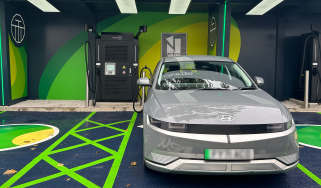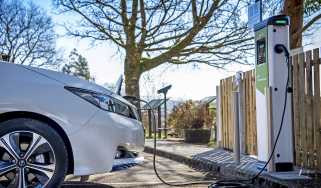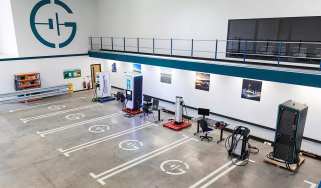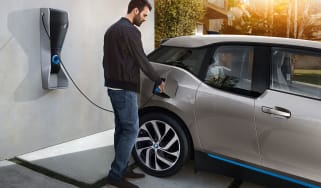Can you store energy you generate?
Generating your own energy through solar or wind is one thing, but you'll need a home battery system to make the most of it

If you have just installed solar panels, a wind turbine or other means of generating your own electricity to charge your electric car, you'll also need to find a way to store the energy you generate.
This is because solar panels and wind turbines can't store the electricity they create on their own. If you charge your car overnight, solar panels will be of little use. Likewise for turbines if there's no wind.
To get the most out of generating your own energy, it’s best to find a way to store the electricity by installing a home battery system.
What is a home battery system?
Much like the lithium-ion batteries in your electric car, a home battery system uses stacks of lithium-ion cells to store energy created.
Energy use varies throughout the day – most commonly there are spikes in the mornings and evenings when appliances like showers, kettles and ovens are used. This means the energy use of a house isn’t always matched with the energy generated through solar or wind. According to estimates, only 30% of solar energy generated in the UK is actually used by the household – the rest is fed into the National Grid.
To help you get the most of the energy generated, a home battery unit will store the electricity generated by solar or wind and allow the home to use it later on. This means it’s possible to charge your electric car at night using electricity generated during the day.
There are other benefits from using a home battery system, too. Nissan says that those using a home battery and solar panels can save up to 66% on their energy bills.
A while ago, our sister site Auto Express found one homeowner who uses solar panels and a home battery system to charge his Renault ZOE and power his house. A sunny day means the solar panels on Warren Philips’ roof can generate up to 40kWh of energy – way above the 14kWh battery requirements of his car. With a 13.5kWh battery cell, it means Warren can charge the car fully during the night with completely renewable energy.
How much is a home battery system?
This depends on the manufacturer and capacity you go for. Nissan’s xStorage and Nissan Energy Solar system, for example, starts out at £3,881 for a six-panel solar energy set-up. Adding the xStorage battery (either 4.2kWh or 6kWh) brings the total to £7,635 all in.
Tesla, on the other hand, sells its Powerwall – a home battery system without the solar panels – for £6,500 per battery.
There are multiple other solutions out there, some like Nissan’s that combine a battery system with solar panels, and others that just sell the battery. It’s best to speak to a qualified electrician to find out which is the best for you.
Recommended

The UK’s fastest electric car charger is live, but it’s too fast for most EVs

UK EV charging network grows by 47 per cent this year

Gridserve’s new lab aims to boost electric car charging point reliability
Most Popular

EV Deal of the Day: budget-friendly Ford Capri for just £234 a month


